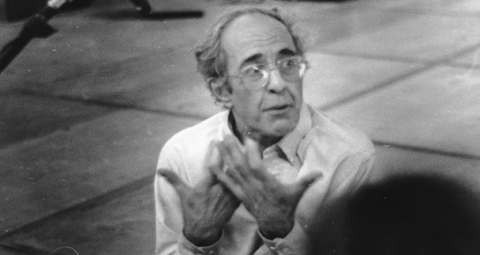May 29 | ![]() 0 COMMENTS
0 COMMENTS ![]() print
print

Moral flaws or divine encounters?
By Fr Ronald Rolheiser
The renowned spiritual writer, Henri Nouwen, made no secret about the fact that he was emotionally over-sensitive and that he suffered, sometimes to the point of clinical depression, from emotional obsessions. At times, he, a vowed
celibate, was simply overpowered by the feeling of being in love with someone who was hopelessly unavailable that he became psychologically paralysed and needed professional help.
Yet, given Nouwen’s moral honesty and the transparency of his life, one would hardly ascribe this to him as a moral flaw, however emotionally-crippling it was at times. He simply could not help himself sometimes, such was his emotional sensitivity.
Almost all sensitive people suffer something similar, though perhaps not as acute as what afflicted Henri Nouwen. Moreover these kinds of emotional obsessions affect our whole lives, including our moral and religious lives. What we do in the pain and paralysis of obsession rarely does us proud and is often far from a free act. In the grip of an emotional obsession we cannot think freely, pray freely, decide things freely, and we are prone to act out compulsively in ways that are not moral. What is the morality of our actions then?
Classical spiritual writers speak of something they term ‘inordinate attachments,’ and, for them, these ‘inordinate attachments’ are a moral fault, something we need to control by willpower. However what they mean by ‘inordinate attachments’ covers a wide range of things. In their view, we can be inordinately attached to our pride, to our appearance, to money, to power, to pleasure, to comfort, to possessions, to sex, and to an endless list of other things. They saw this as the opposite of the virtue of detachment. And, since its opposite is a virtue, ‘inordinate attachment’ is, for classical spirituality, a vice, a moral and spiritual flaw.
There is a lot to be said positively for this view. Normally, lack of detachment is a moral flaw. But, perhaps there is an exception. An inordinate attachment can also be an emotional obsession with another person and this muddies the moral issue. Obsessions, generally, are not freely-chosen, nor are they often within the power of the will to control, at least inside the emotions. As our old Catechisms and moral theology books used to correctly teach: We are responsible for our actions, but we are not responsible for how we feel. Our emotions are like wild horses; they roam where they will and are not easily domesticated and harnessed.
Hence, I believe, the notion of ‘inordinate attachments,’ as expressed in classical spirituality, needs to be nuanced by series of other concepts which, while still carrying the same warning labels, carry something more. For example, today we speak of ‘obsessions,’ and we all know how powerful and crippling these can be. You cannot simply wish or will your way free of an obsession. But is that a moral flaw?
Sometimes too we speak of ‘being possessed by demons’ and that also has a variety of meanings. We can be possessed by a power beyond us that overpowers our will, be that the devil himself or some overpowering addiction such as alcohol or drugs. Most of us are not overpowered, but each of us battles with his or her own demons and the line between obsession and possession is sometimes thin.
Moreover, today archetypal psychologists speak of something they call ‘daimons,’ that is, they believe that what explains our actions are not just nature and nurture, but also powerful ‘angels’ and ‘demons’ inside us, that relentlessly haunt our bodies and minds and leave us chronically obsessed and driven. But these ‘daimons’ are also very often at the root of our creativity and that is why we often see—in the phraseology of Michael Higgins—‘tortured genius’ in many high-achievers, romantics, people with artistic temperaments, and people like Van Gogh and Nouwen, who, under the pressure of an obsession, cut off an ear or check themselves into a clinic.
What is the point of highlighting this? A deeper understanding of ourselves and others, is the point. We should not be so mystified by what happens sometimes in our world and inside us. We are wild, obsessed, complex creatures, and that complexity does not take its root, first of all, in what is evil inside us. Rather it is rooted in what is deepest inside us, namely, the image and likeness of God. We are infinite spirits journeying in a finite world. Obsessions come with the territory. In ancient myths, gods and goddesses often fell helplessly in love with human beings, but the ancients believed that this was a place where the divine and human met. And that still happens: The divine in us sometimes too falls hopelessly in love with another human being. This, of course, does not give us an excuse to act out as we would like on those feelings, but it does tell us that this is more an encounter between the divine and the human than it is a moral flaw.
— Fr Ronald Rolheiser is a priest and member of the Missionary Oblates of Mary Immaculate. He is president of the Oblate School of Theology in San Antonio, Texas. Visit his website at www.ronrolheiser.com
.










